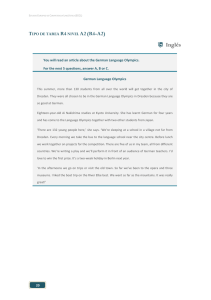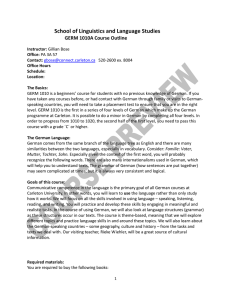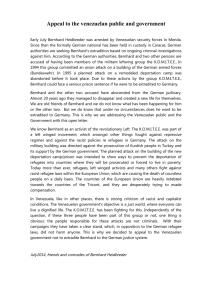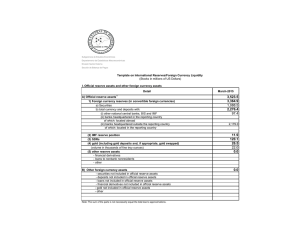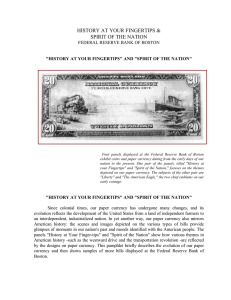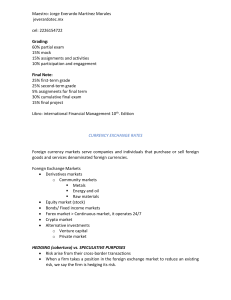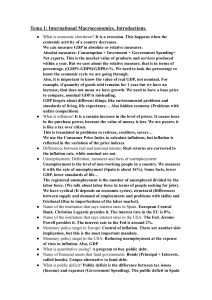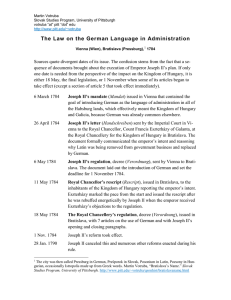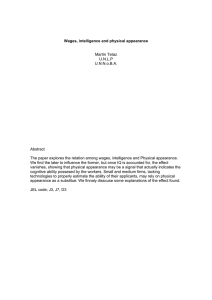We Need to Restore the European Monetary System
Anuncio
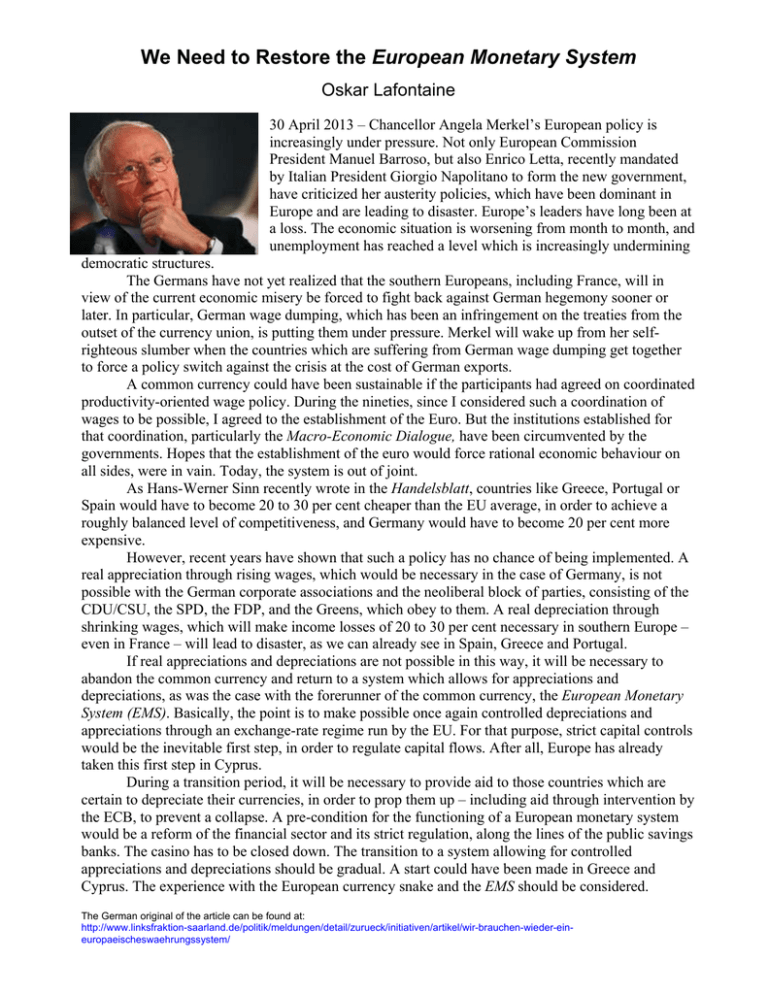
We Need to Restore the European Monetary System Oskar Lafontaine 30 April 2013 – Chancellor Angela Merkel’s European policy is increasingly under pressure. Not only European Commission President Manuel Barroso, but also Enrico Letta, recently mandated by Italian President Giorgio Napolitano to form the new government, have criticized her austerity policies, which have been dominant in Europe and are leading to disaster. Europe’s leaders have long been at a loss. The economic situation is worsening from month to month, and unemployment has reached a level which is increasingly undermining democratic structures. The Germans have not yet realized that the southern Europeans, including France, will in view of the current economic misery be forced to fight back against German hegemony sooner or later. In particular, German wage dumping, which has been an infringement on the treaties from the outset of the currency union, is putting them under pressure. Merkel will wake up from her selfrighteous slumber when the countries which are suffering from German wage dumping get together to force a policy switch against the crisis at the cost of German exports. A common currency could have been sustainable if the participants had agreed on coordinated productivity-oriented wage policy. During the nineties, since I considered such a coordination of wages to be possible, I agreed to the establishment of the Euro. But the institutions established for that coordination, particularly the Macro-Economic Dialogue, have been circumvented by the governments. Hopes that the establishment of the euro would force rational economic behaviour on all sides, were in vain. Today, the system is out of joint. As Hans-Werner Sinn recently wrote in the Handelsblatt, countries like Greece, Portugal or Spain would have to become 20 to 30 per cent cheaper than the EU average, in order to achieve a roughly balanced level of competitiveness, and Germany would have to become 20 per cent more expensive. However, recent years have shown that such a policy has no chance of being implemented. A real appreciation through rising wages, which would be necessary in the case of Germany, is not possible with the German corporate associations and the neoliberal block of parties, consisting of the CDU/CSU, the SPD, the FDP, and the Greens, which obey to them. A real depreciation through shrinking wages, which will make income losses of 20 to 30 per cent necessary in southern Europe – even in France – will lead to disaster, as we can already see in Spain, Greece and Portugal. If real appreciations and depreciations are not possible in this way, it will be necessary to abandon the common currency and return to a system which allows for appreciations and depreciations, as was the case with the forerunner of the common currency, the European Monetary System (EMS). Basically, the point is to make possible once again controlled depreciations and appreciations through an exchange-rate regime run by the EU. For that purpose, strict capital controls would be the inevitable first step, in order to regulate capital flows. After all, Europe has already taken this first step in Cyprus. During a transition period, it will be necessary to provide aid to those countries which are certain to depreciate their currencies, in order to prop them up – including aid through intervention by the ECB, to prevent a collapse. A pre-condition for the functioning of a European monetary system would be a reform of the financial sector and its strict regulation, along the lines of the public savings banks. The casino has to be closed down. The transition to a system allowing for controlled appreciations and depreciations should be gradual. A start could have been made in Greece and Cyprus. The experience with the European currency snake and the EMS should be considered. The German original of the article can be found at: http://www.linksfraktion-saarland.de/politik/meldungen/detail/zurueck/initiativen/artikel/wir-brauchen-wieder-eineuropaeischeswaehrungssystem/

